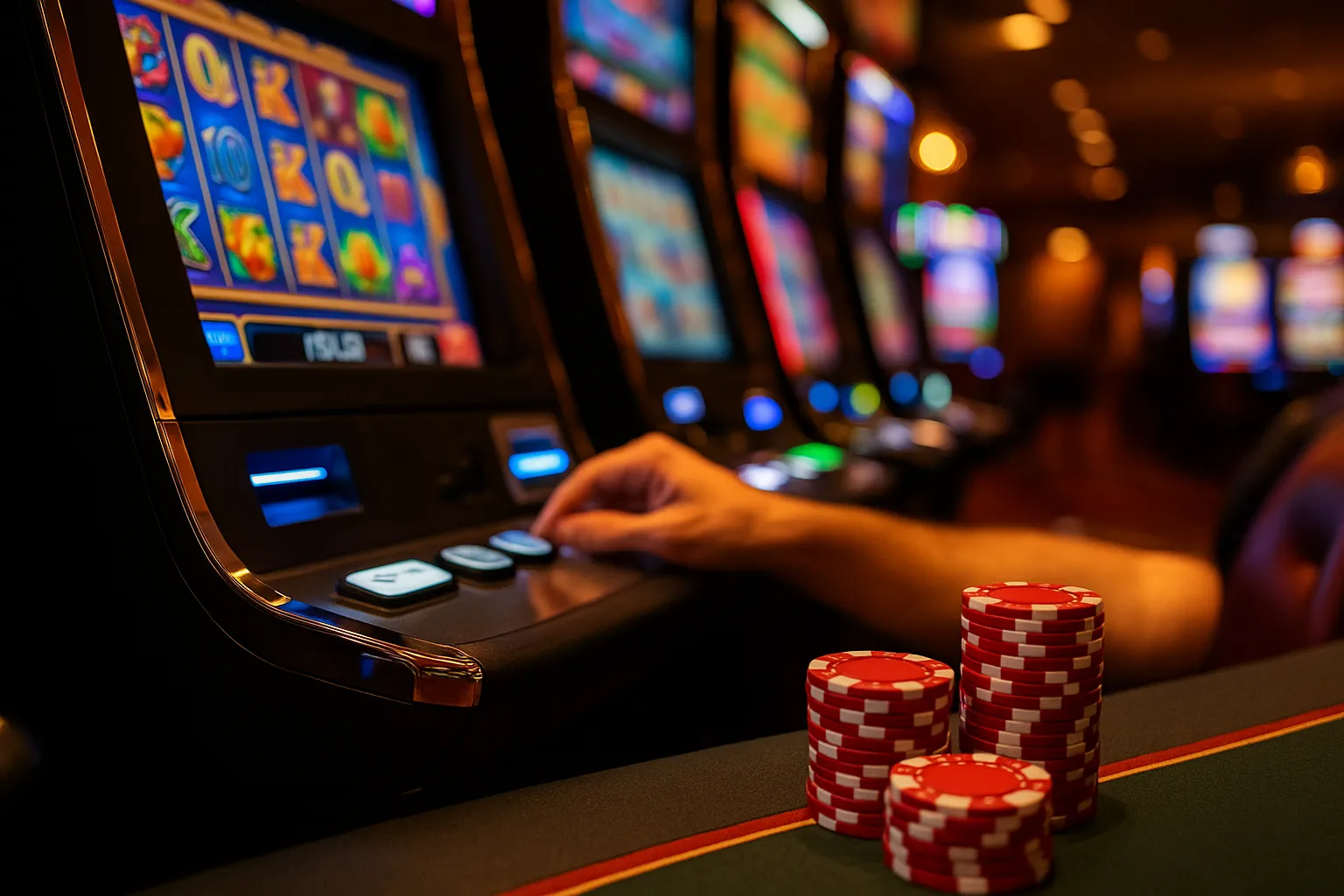Slot machines have always carried an air of mystery. Players often wonder if the way they play—pressing the spin button faster, betting higher amounts, or switching games frequently—can influence the outcome. After all, when you’re sitting in front of flashing lights and spinning reels, it feels like your behavior should matter. But does it really? Let’s explore how slot algorithms actually work and whether player behavior has any effect.
Understanding the Basics of Slot Algorithms
At the heart of every modern slot machine is a Random Number Generator (RNG). This software runs continuously, generating thousands of number combinations per second. When you press the spin button, the RNG stops on a particular sequence, which determines the position of the reels and the result of that spin.
The critical point here is that the RNG doesn’t store memory of previous spins. Each outcome is independent, meaning your chances of winning don’t change based on how long you’ve been playing or how much you’ve already lost. That’s what makes slots games of chance rather than skill.
The Role of Return to Player (RTP) and Volatility
Slot algorithms also operate within defined parameters set by developers. Return to Player (RTP) percentages represent the theoretical long-term payout rate. A slot with a 96% RTP, for example, is designed to return £96 for every £100 wagered over a very long sample of spins.
Volatility adds another layer. High-volatility slots might pay less frequently but offer bigger wins when they do hit, while low-volatility slots provide smaller, more regular payouts. These parameters are built into the algorithm and are not influenced by how individual players behave.
Why Players Feel Like They Influence Outcomes
If slots are governed by RNGs, why do so many players believe their behavior makes a difference? It comes down to psychology. The experience of pressing a button creates a sense of control, even though the result is random. Timing a spin, adjusting your bet size, or switching machines may feel strategic, but in reality, these actions don’t alter the outcome.
Casinos and developers design games to enhance this feeling of control. Interactive features, bonus rounds, and near-misses all encourage players to believe their behavior matters more than it does.
The Digital Age and Online Slot Play
Online casinos have carried these principles into the digital realm. Whether you’re playing on your phone or computer, the RNG works the same way. The only difference is accessibility. Online platforms, including uk slot sites, provide a vast library of games, but the mechanics behind the scenes remain consistent. Player behavior, such as the speed of play or switching devices, doesn’t influence the underlying algorithm.
Player Behavior and Casino Analytics
While your behavior doesn’t change the outcome of spins, it does matter to casinos in another way: analytics. Casinos track patterns like how long players stay on a game, how much they bet, and when they stop playing. This information helps them design promotions, bonuses, and game features that encourage longer play sessions.
So while you can’t change the RNG, your behavior can indirectly influence the types of offers and incentives you receive. For example, if you regularly play at certain times, you might notice promotions targeted around those hours.
The Myth of “Hot” and “Cold” Machines
One of the most persistent myths in slot play is the idea of “hot” or “cold” machines. Players often believe that a machine that hasn’t paid out in a while is “due” for a win. In reality, RNGs ensure every spin is independent. The machine doesn’t remember past outcomes, so a long losing streak doesn’t make a win more likely.
This myth is fueled by selective memory—players remember the times a machine seemed to “heat up” but forget the many times it didn’t. Understanding that each spin is statistically random is key to playing with realistic expectations.
Real-World Example: When Belief Shapes Experience
I once spoke with a player who swore by a ritual of pressing the spin button three times in quick succession, claiming it increased his chances of hitting a bonus. Of course, the math says otherwise, but for him, the ritual added enjoyment and confidence. While his behavior didn’t change the algorithm, it did change his experience of playing.
This highlights an important truth: while player behavior doesn’t influence outcomes, it can influence satisfaction. The rituals and habits players create give them a sense of involvement, even if the results are predetermined by RNG.
Responsible Play and Awareness
Recognizing that slot algorithms are unaffected by player behavior is essential for responsible play. Once you understand that outcomes are random and unchangeable, you can focus on playing for entertainment rather than chasing strategies that don’t work.
Setting limits on time and budget becomes easier when you acknowledge that no trick or habit will alter the odds. Enjoy the fun, but don’t fall for the illusion of control.
Final Thoughts
Slot algorithms are built on randomness, not on how you play. RNGs, RTP percentages, and volatility ensure that outcomes are mathematically determined, independent of player behavior. While your actions might shape your personal experience or the promotions you’re offered, they don’t change the reels themselves.
Believing otherwise can lead to frustration or unrealistic expectations. By understanding the mechanics, you can enjoy slots for what they are: games of chance designed for entertainment, not strategy. Modern platforms like uk slot sites make these games more accessible than ever, but the core truth remains the same—your behavior doesn’t influence the algorithm.









